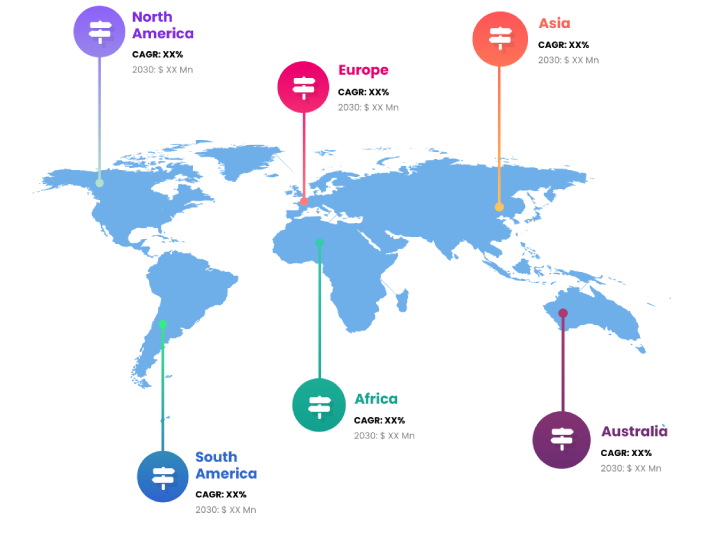To ensure that the automotive parts remain competitive, deliver a guaranteed performance, and provide customer safety and satisfaction, EV test equipment is used to examine various components of electric cars (EVs) such a battery, motor, and others. In addition to evaluating overall vehicle performance, it may be used to evaluate EV batteries and chargers, power electronics, and motors and dynamometers. Also included is what is known as interoperability or compliance testing, which ensures that the systems in the back office can effectively communicate with one another.

To maintain an edge over the competition, guarantee performance, and assure customer safety and happiness, EV test equipment is used to evaluate a wide range of EV components such batteries, motors, and other components. Electric vehicles rely on this equipment to evaluate their overall performance, from the batteries and chargers through the motors and dynamometers. Motor testing equipment uses sensors, voltage probes, and other software to evaluate torque or electric signal and high speed in an electric vehicle.
The rising popularity of alternative fuel vehicles and the need for convenient transportation have stimulated the market for electric cars. Several governments have passed laws favouring electric vehicles in an effort to reduce pollution and emissions from the automobile sector. The increasing demand for EVs is expected to boost growth in the EV test equipment market. Faster charging is possible at greater voltages, which has led to the widespread use of high-capacity batteries, transmissions, and power supplies. Therefore, developments in new battery technologies, rising demand for electronic capabilities and features in a vehicle, and strict emission standards fuel the demand for EV test equipment and software.
New trends, trade regulations, import/export analysis, production analysis, value chain optimisation, market share, impact of domestic and localised market players, analyses opportunities in terms of emerging revenue pockets, changes in market regulations, strategic market growth analysis, market size, category market growths, application niches and dominance, product approvals, product launches, geographic breakdown, and more are all included in the EV test equipment market report. If you're interested in learning more about the EV test equipment market, reach out to the experts at Data Bridge Market Research for an Analyst Brief.
Support for clean transportation has raised awareness, expanded charging infrastructure, and paved the way for a growth in the popularity of electric cars (EVs) over the past few years. Moreover, numerous governments have shown interest in investing in electric vehicles in response to rising automobile emission issues and the depletion of nonrenewable energy resources. The European Union is a leader in the transition to electric vehicles. The European Environment Agency reports that by 2020, 11% of all newly registered passenger cars were electric vehicles; of these, 6% were battery electric vehicles (BEVs) and 5% were plug-in hybrid electric vehicles (PHEVs). Subsidies and tax exemptions for both the business and consumers in Europe and Asia-Pacific have contributed to a thriving market for electric vehicles there and across the world. For instance, in 2025, the Canadian government has mandated that 10% of all new passenger vehicles sold be zero-emission vehicles; this number increases to 30% by 2030, and to 100% by 2040. As a result, the EV testing equipment market is anticipated to rise due to rising demand for EVs.
Report Coverage
Global EV Test Equipment research report categorizes the market for global based on various segments and regions, forecasts revenue growth, and analyzes trends in each submarket. Global EV Test Equipment report analyses the key growth drivers, opportunities, and challenges influencing the global market. Recent market developments and EV Test Equipment competitive strategies such as expansion, product launch and development, partnership, merger, and acquisition have been included to draw the competitive landscape in the market. The report strategically identifies and profiles the key EV Test Equipment market players and analyses their core competencies in each global market sub-segments.
| REPORT ATTRIBUTES | DETAILS |
|---|---|
| Study Period | 2017-2030 |
| Base Year | 2022 |
| Forecast Period | 2022-2030 |
| Historical Period | 2017-2021 |
| Unit | Value (USD Billion) |
| Key Companies Profiled | Arbin Instruments, ATESTEO GmbH, AVL, Blum-Novotest GmbH, Burke Porter Group, Chroma ATE Inc., Durr Group, FEV Group GmbH, HORIBA, Ltd., Intertek Group Plc, Keysight Technologies, KUKA Aktiengesellschaft, SGS SA, Sierra Instruments, Inc., Softing AG, Tasi Group, TÜV Rheinland, and ZF Friedrichshafen AG. |
| Segments Covered | • By Product |
| Customization Scope | Free report customization (equivalent to up to 3 analyst working days) with purchase. Addition or alteration to country, regional & segment scope |
Key Points Covered in the Report
- Market Revenue of EV Test Equipment Market from 2021 to 2030.
- Market Forecast for EV Test Equipment Market from 2021 to 2030.
- Regional Market Share and Revenue from 2021 to 2030.
- Country Market share within region from 2021 to 2030.
- Key Type and Application Revenue and forecast.
- Company Market Share Analysis, EV Test Equipment competitive scenario, ranking, and detailed company
profiles. - Market driver, restraints, and detailed COVID-19 impact on EV Test Equipment
Market
Competitive Environment:
The research provides an accurate study of the major organisations and companies operating in the global EV Test Equipment market, along with a comparative evaluation based on their product portfolios, corporate summaries, geographic reach, business plans, EV Test Equipment market shares in specific segments, and SWOT analyses. A detailed analysis of the firms' recent news and developments, such as product development, inventions, joint ventures, partnerships, mergers and acquisitions, strategic alliances, and other activities, is also included in the study. This makes it possible to assess the level of market competition as a whole.
List of Major Market Participants
FEV group Gmbh, Dynomerk Controls, INTERTEK GROUP PLC, Burke Porter Group, Maccor Inc (Key Innovator), AVL List Gmbh, Dewesoft, Kuka AG (Key Innovator), Chroma Ate, KEYSIGHT TECHNOLOGIES, INC, Atesteo Gmbh, Horiba, Froude, Inc, Blum-Novotest Gmbh, Durr Group, Arbin Instruments, Comemso electronics GmbH
Primary Target Market
- Market Players of EV Test Equipment
- Investors
- End-users
- Government Authorities
- Consulting And Research Firm
- Venture capitalists
- Third-party knowledge providers
- Value-Added Resellers (VARs)
Market Segment:
This study forecasts global, regional, and country revenue from 2019 to 2030. INFINITIVE DATA EXPERT has segmented the global EV Test Equipment market based on the below-mentioned segments:
Global EV Test Equipment Market, By Vehicle Type
Passenger Car
Commercial Vehicle
Global EV Test Equipment market, By Application
EV Component
EV Charging
Powertrain
Global EV Test Equipment Market, By Vehicle Class
Mid-priced
Luxury
Global EV Test Equipment market, Regional Analysis
- Europe: Germany, Uk, France, Italy, Spain, Russia, Rest of Europe
- The Asia Pacific: China,Japan,India,South Korea,Australia,Rest of Asia Pacific
- South America: Brazil, Argentina, Rest of South America
- Middle East & Africa: UAE, Saudi Arabia, Qatar, South Africa, Rest of Middle East & Africa
You will get in-depth and extensive ev test equipment market market research and competitor analysis for your business to help you develop more profound insights into the ev test equipment market Market.
Through INFINITIVE Data Expert is a professional Market Research services, I will identify the ev test equipment market market size, demand & opportunities, growth rate, and target audience with a comprehensive analysis of your competitors.



